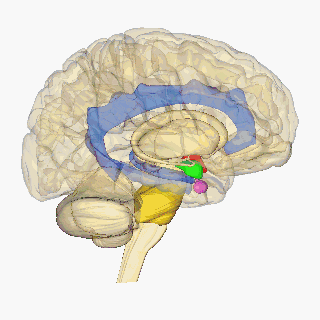As we all know, children inherit physical traits from their parents. But a new Israeli study suggests that stress experienced by the parents may be passed down not only to their children, but also to their grandchildren, a surprising conclusion considering the fact that the stress experienced is not part of the parents’ or children’s DNA. Or is it?
A team of researchers led by University of Haifa’s Dr. Inna Gaisler-Salomon found that exposing female rats to stress during adolescence, before they ever become pregnant, causes behavioral changes among their direct offspring when the latter reach adulthood. The effects vary, and include a more daring, adventurous behavior in grandchildren.
The researchers also found that stress-reactive hormone Corticosterone (corresponding to Cortisol in humans) expresses itself differently in those animals whose parents were exposed to stress.
In their latest study, the researchers examined whether the effects of stress could affect not only children but also grandchildren. The researchers exposed young female rats to changes in temperature and in their routine for a week, elevating their level of stress.
It’s important to note that their direct offspring grew up without any stress-inducing intervention, as did their grandchildren. The third generation of rats (the grandchildren) underwent tests that measured anxiety-like behavior and the acquisition of fear. In addition, the levels of Corticosterone were measured, as well as the expression of its gene, CRF1.
SEE ALSO: Israeli Scientists Help Create First 3D Map Of The Brain
The findings indicate that the effects of stress on the first-generation mother rat continue to influence her grandchildren on all three levels: Behavioral, hormonal, and the manifestation of the CFR1 gene.
On the behavioral level, the third generation descendants (mainly females) were, perhaps surprisingly, more daring, spent more time in the frightening parts of their maze, and exhibited less anxious behavior in various tests when compared with the offspring of rats that were not exposed to stress. In addition, the offspring of the rats exposed to stress demonstrated a more rapid acquisition of fear relative to the descendants of the control group.
“The rats whose grandmothers were exposed to stress displayed more adaptive behavior to their surroundings,” Gaisler-Salomon said in a statement. “Wherever greater curiosity was needed to improve their chances of survival, they displayed curiosity, but the moment they were exposed to a frightening event, they learned quickly and reacted more extremely to this event.”
Sign up for our free weekly newsletter
SubscribeHowever, it is impossible to talk in a dichotomous fashion about the positive or negative impact of the stress their grandmother was exposed to. “This is a complex effect that depends on the context of the situation,” she says.
Each generation is affected differently
The study also found that behavioral differences among the first generation of rats which were exposed to trauma were different from those found among the second generation. In other words, the effect of the trauma is transmitted between generations, but it affects each generation differently.
SEE ALSO: Revolutionary: Israeli Researcher Says He Can ‘Erase’ Memory Of Addiction
“Adolescence is a very sensitive period, and our studies show that exposure to stress at this stage of life affects not only the affected female, but also the behavior and stress hormone levels of her first and second-generation offspring,” Gaisler-Salomon says. “Our studies further suggest that there are processes unrelated to maternal care that can explain how information is transmitted from generation to generation. The exciting new field of epigenetics can explain some of the findings.”
Epigenetics is a sub-specialty of genetics that examines how genes and their expressions are affected by environmental factors. Initially studied by psychologists and developmental biologists in the first half of the 20th century, the field has garnered renewed attention now that scientists have genetic mapping capabilities and the computing power that enables researchers to analyze millions of genetic data points. Though the field is still relatively nascent, the growing body of research is beginning to shed light on how individual genes may be manipulated by environmental factors, thereby leading to depression, addiction and a host of other neurological disorders yet to be fully understood by scientists.
Photos: Eric Wienke; Jean Pierre Gallot
Related posts

Rehabilitation Nation: Israeli Innovation On Road To Healing

Israeli High-Tech Sector 'Still Good' Despite Year Of War








Facebook comments